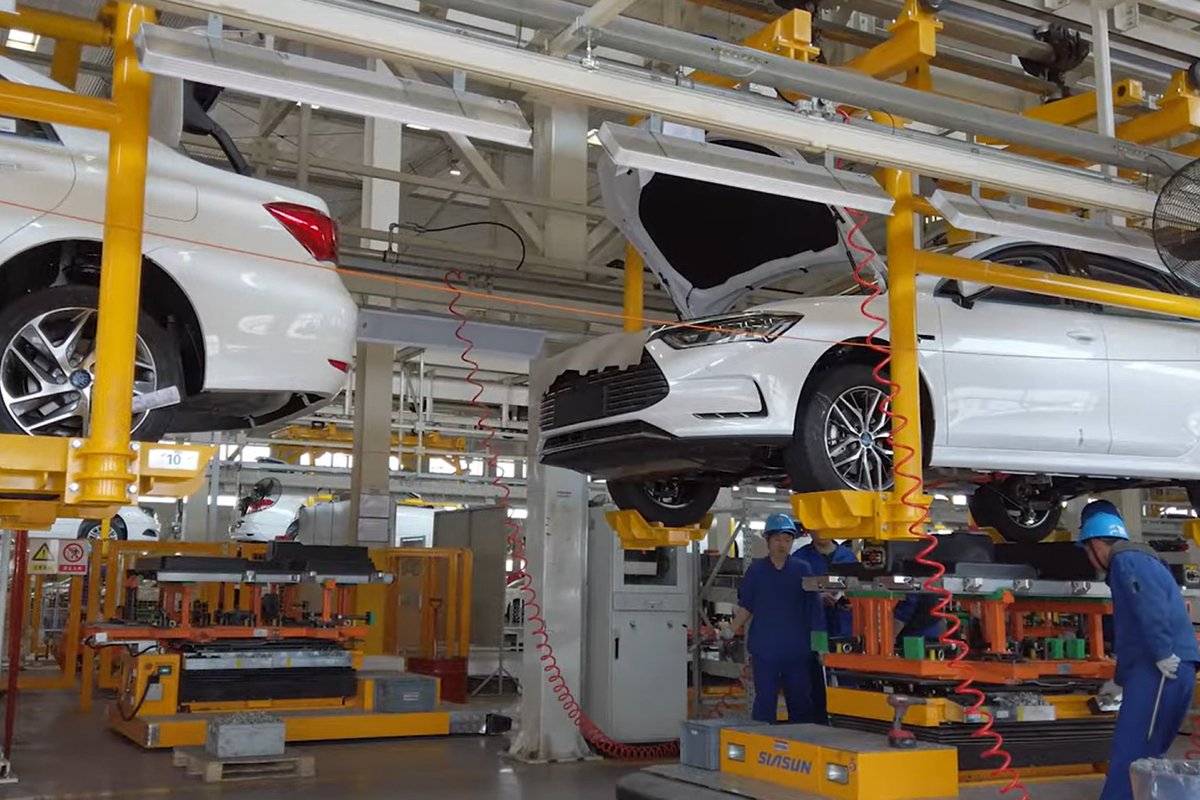Amid China’s struggles with excess manufacturing of various products, workers at a domestic auto plant are confronted with a tough decision regarding their employment.
According to a Tuesday interview with Nikkei, Lisa, a factory worker at the Li Auto Factory and a newlywed bride, stated that over 1,000 employees, including herself, were presented with the option to either resign or accept minimum wage until business conditions pick up.
The 27-year-old worker further noted: “We were told that our pure electric vehicle sales are weak due to the bad conditions, so the company has to cut production.” Speaking on the condition of anonymity, Lisa said if she fails to find another job, she will be “starving to death.”
I’m honestly surprised China has a minimum wage.
It’s probably something stupid like a dollar a day
https://en.wikipedia.org/wiki/Minimum_wage_in_China
Looks like the lowest as of 2023 equates to about 1.79 USD an hour?
That sounds crazy low, but I also wonder what the spending power is there? I mean, if you take $7/hr in the US and put that in San Francisco, you’re gonna have a rough time, but lots of places that’s uncomfortable but not starving, you know?
Just from context and reports about conditions of poor Chinese people, I imagine it’s worse than our $7 in a rural area, but I don’t feel like I can get a clear idea of what that means to a person living there beyond “that’s really poor.”
Sounds like it’s time to unionize.
If minimum wage is below sustenance, it’s also time to lynch and burn alive one of the executives to assert dominance.
Unionize? In China? Umm….
Bring out the tanks!
i wonder if this means that the american and western european tariffs on EV’s will work.
Depends on what the definition of “working” is.
If it’s to damage China’s EV producers, then yes, they’ll work.
If it’s to promote sales of domestically produced EVs, then probably a bit, although to what degree is unknown.
If it’s to help domestic producers ramp up and grow the domestic EV market at, or around, the same rates that cheap imported EVs would… probably not.
Which circles back to, if the goal is to dampen and slow the adoption of EVs en masse, then yes, it will probably work. Although, to what degree is unknown and can be heavily influenced by other forms of legislation and regulation.
The goal is to stop China from trying to own the EV market, which is what they’re trying to do by subsidizing export production.
Subsidizing export production is VERY different from subsidizing domestic production. The former is a type of economic warfare; the latter is a domestic policy mechanism. I know it’s nuanced but there is absolutely a meaningful difference.
That is their publicly stated goal, but that doesn’t mean it’s the policies true objective, or it’s only one.
I’m not providing any moral, or value, judgement on any of this, nor am I claiming to know what went on inside the halls of power when crafting this policy that isn’t public knowledge.
I’m simply stating that there are many “objectives” that this policy might be intended to achieve, other then what’s been publicly promoted.
Which is pretty much true for any piece of legislation or new regulations that get processed through bureaucratic machinery with many competing outside influences and pressures.
FWIW I’m not a free trade economic liberal. I support protectionism, when it’s justified. Especially in cases where it protects workers, or counters hostile policies e.g. dumping.
It never occurred to me that the tariffs could be for anything other than blocking off access to affordable EV’s to protect automaker profits; I guess Reddit has made me cynical
There are legitimate justifications for this type of protectionism, such as dumping and other predatory pricing schemes. Those are reasonable and legitimate concerns in this instance.
My point was that for a policy with so many vested and monied interests, it’s not unreasonable to consider that the policy makers might have alternative, or additional, policy objectives as well, including ones that aren’t publicly acknowledged.




